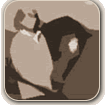 |
|||||||||
|
|||||||||||||||||||
|
|
Weight for
Age is the Focus of Beef Production Unit Weight for age is the focus of the specialist beef production unit run by Cumbrian David Stobart.
Re-structuring of the farm business after 2001 at Cracrop, Kirkcambeck, near Brampton, Carlisle, concentrated on two pedigree beef herds – Charolais and Limousin. The Limousins, which now run to 100 breeding cows, and the Charolais, numbering 60 cows today, take the place of a 250-cow commercial suckler herd. Over the last decade or so the system run by David and his wife Marjorie at Cracrop has changed. Milk production from an Ayrshire herd ceased in 1996 and a Charolais herd established in 1982 was continued alongside the commercial sucklers. However, when the farm lost all its livestock during 2001’s foot and mouth epidemic, David decided to run the two pedigree herds and specialise in beef production. The re-structuring of the business coincided with the Stobarts’ son, Paul, taking on the tenancy of his own farm at Scalehouses, Renwick near Penrith. Now the couple farm a reduced acreage of 500 grassland acres, running a smaller flock of 200 commercial ewes. The farm is in Entry Level Stewardship and boasts three large ponds attracting a wide variety of wildlife.
“We set up a Limousin herd because of the difficulties in finding a good suckler cow because of the Holstein influence,” said David. Another factor was that their long-term herdsman Keith Thompson, who died suddenly in July this year aged 44, was an enthusiast of the Limousin breed and his widow Mary continues to work for the Stobarts. Now with herds in both breeds well-established, there is a good trade for breeding bulls and females, sold either through the ring or privately, supported by a strong commercial trade for pedigree males and females which are not being retained for breeding. “We sold two 16 month old prime bulls which we did not want to keep for breeding and they averaged £866. For similar age steers we are getting £650 and £550 for heifers,” said David. “A pure bred herd is as viable as a commercial herd – without taking into account the sale of bulls even at £2,000 and £3,000 apiece. “We also have the benefit of breeding our own replacements.” David Stobart is an advocate of breeding framey cattle which can produce the weights demanded by the commercial beef market. “It amazes me that the prime cattle, especially Limousin heifers, are weighing 480 to 520kg at 18 to 20 months old. “It’s a pity that these fancy shaped calves are so much money at the suckled calf sales. Even the people selling these calves admit that if they were feeding their own cattle they would be breeding different animals. They recognise that what really pays is weight. “I question how much muscle you want on a carcase – it’s the fleshing ability you need, especially over the loin and the back where the important cuts are.” Both pedigree herds are performance recorded and cattle are regularly weighed. A recent batch of Limousin heifers up to 18 months old ready for serving at two years old, averaged 650kg.
For both herds, bulls in particular are selected with a particular emphasis on weight gain. The first stock bull for the Stobarts Charolais herd was bought at Perth in February 2003. Not afraid to invest in a good stock bull, David paid 11,000gns for the junior champion Thrunton Scania, which in the latest list of Charolais sires has the highest score for weight gain – with the exception of his father, Mawbraypark Orlando. Later that year he was breed male champion at the Royal Show, weighing 1,200kg and bulls by him sold up to 7,500gns for the May 2004 born Stobarts Visa. Latest stock bulls are Thrunton Vulcan, by Burradon Talisman, and Bassett Vania, both of which have got good calves on the ground. The foundation Charolais herd was Martin and Glenda Tillbrook’s Tillbrook herd at High Wycombe. The initial purchase of around 60 head included youngstock and big rangey cows, a number of which were by Lomberhurst Volunteer. Stock bulls were Tamhorn Mustard, Chathill Meteor and Kelton Impresario. The emphasis on weight for age has also been paramount in the Limousin herd with one of the entry for the November Carlisle sale, Cracrop Banjo, weighing 971kg at 22 months old. Believing the pure-bred Limousin to be most suited as a commercial suckler cow, when David established the herd he had not set his sights on being able to sell large numbers of breeding bulls. A bull sold at Carlisle in May this year for 5,500gns and 30 to 40 bulls a year have been selling privately between £2,000 and £4,000 to commercial suckler producers and for use in dairy herds. The Limousins were founded from the adult portion of a herd bought in Cheshire with later additions of bulling heifers from the same herd. The stock bull Redrock Orlando came with the cows. Later bulls used are Tomschoice Salem, a junior champion at the Great Yorkshire and Royal shows, which has since been sold on to Borders breeder Robert Neill, Ronick Hawk son Tunnelby Vindolanda and Elrick Thunder. The most recent stock bull, Mynach Axle, was bought at the Carlisle May sale for 12,000gns. Both herds are monitored in the SAC health scheme. The cattle are vaccinated BVD, leptospirosis and monitored for IBR. A first Johnes test has proved negative.
|
||||||||||||||||||

|
|
||||||||||||||||||
| home | agri-services | pedigree
pen | news | dairy | beef | machinery property | organisations | site map |
|||||||||||||||||||

Article by
Jennifer MacKenzie


